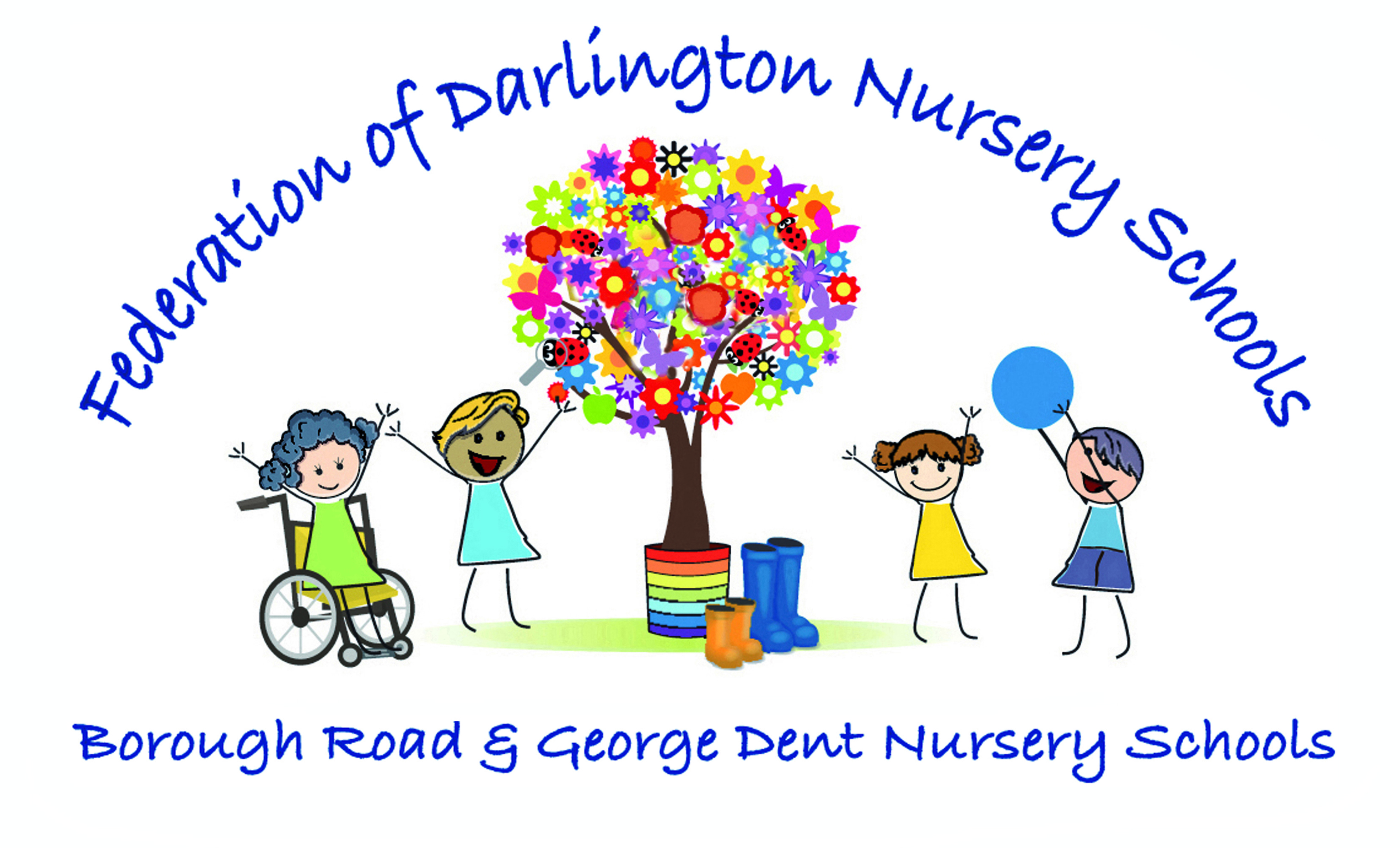'Responding to Process' - The Federation's Approach to Education and Care

Introduction: ‘Responding to Process: A gentle approach to learning together with young children’.
We ask that you do not underestimate the power and significance in the words ‘gently learning’. We believe that learning is a natural process, that is spontaneously happening every day. When you give children space and time, learning happens. Children learn by experiencing and by doing, by exploring. Through trial and error, they learn from their mistakes; they develop thinking and spatial reasoning skills and learn how to collaborate to improve their social skills. Our educators value the ‘process’ of learning which can take many forms.
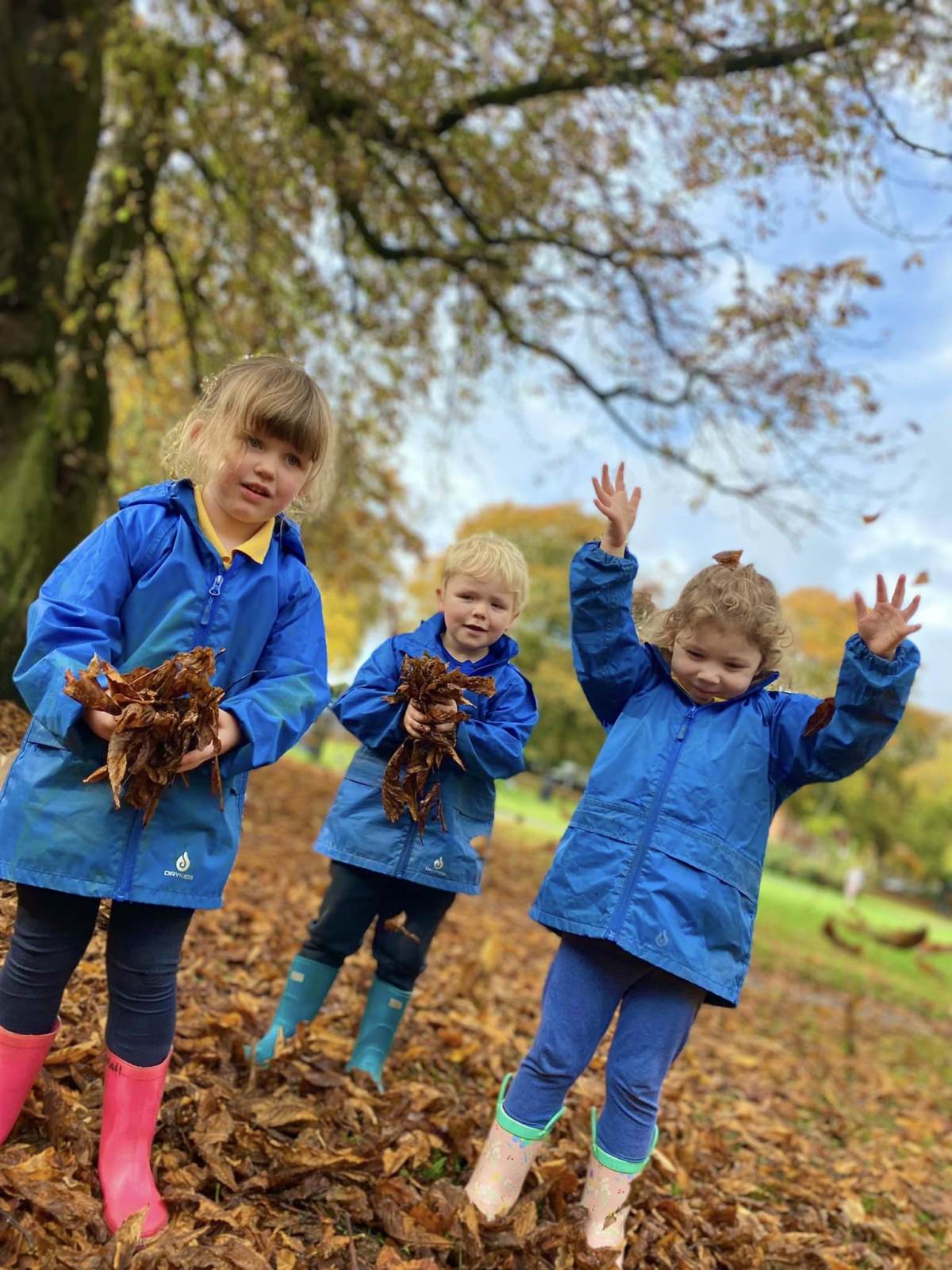
Lev Vygotsky, the Russian developmental psychologists said,
“It must not be forgotten that the basic law of children's creativity is that its value lies not in its results, not in the product of creation, but in the process itself. It is not important what children create, but that they do create, that they exercise and implement their creative imagination.”
We focus on establishing warm and respectful relationships within our inclusive community; where we learn to treat others as we want to be treated; and appreciate the uniqueness in everyone. This is built upon what we know about each child and the communities in which they live. We understand that for parents and care givers knowing that their child is in an environment they love and with educators they trust, is essential. However, knowing that their child will be learning through play and that their child will be seen as an individual with their own abilities and characteristics is what makes our schools stand out; children learning as they play whilst our educators interact kindly and calmly with knowledge and understanding of each child they encounter.
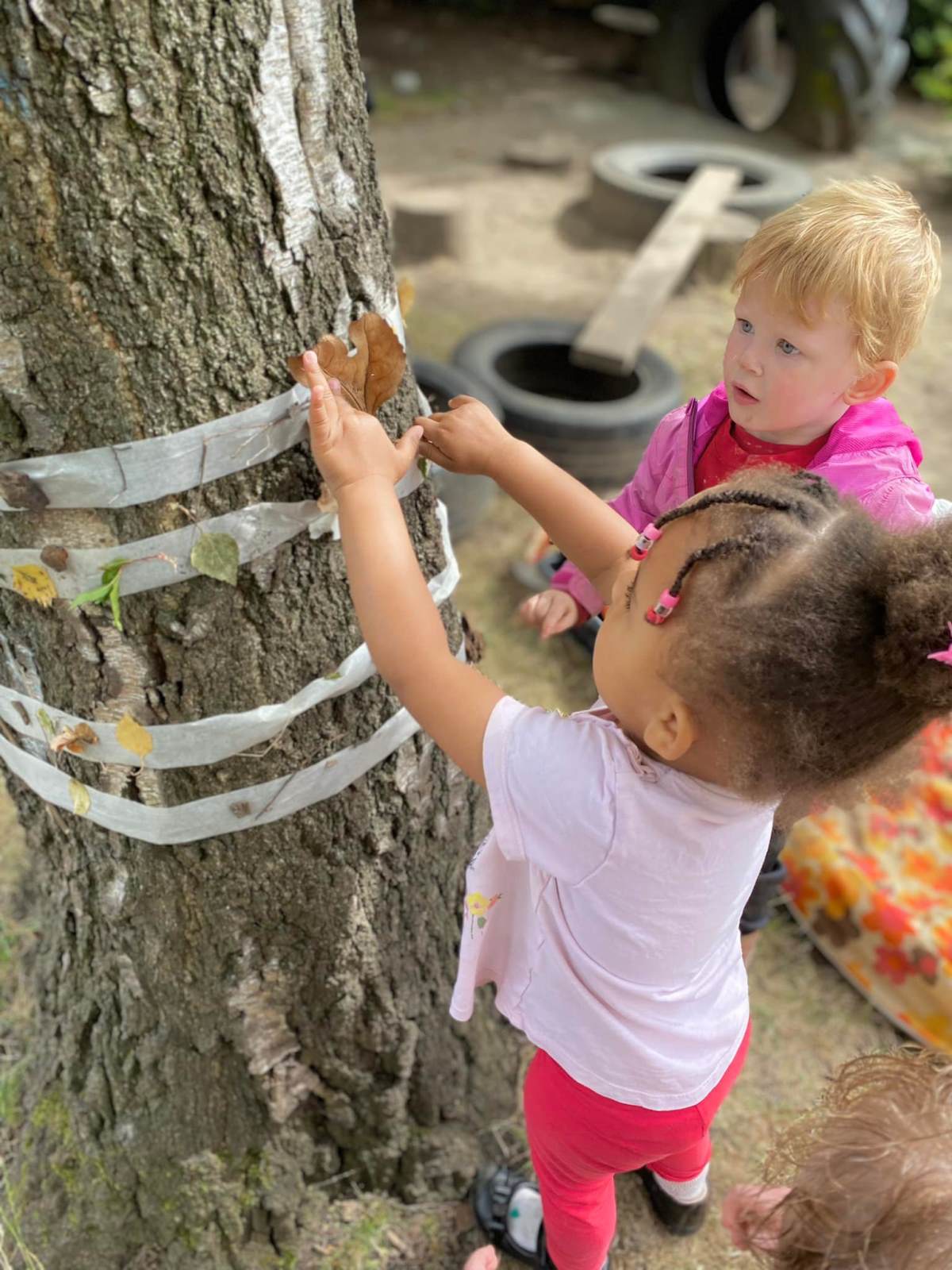
Pedagogy:
Our approach to education at the Federation of Darlington Nursery Schools is rooted in our understanding of how young children learn. It is an approach that relies upon our educator’s response to each child, valuing the whole child and nurturing learning. It is rigorous, thoughtful, intelligent, and requires highly skilled early years specialists to deliver it. It has evolved over time and has been influenced by educators, past and present, such as Reggio Emilia, Froebel, Te-Whariki and many more. As educators, we are always learning, and we have invested time in listening, observing, and interacting so that we can recognise the often complicated and multifaceted ‘process’ of learning.
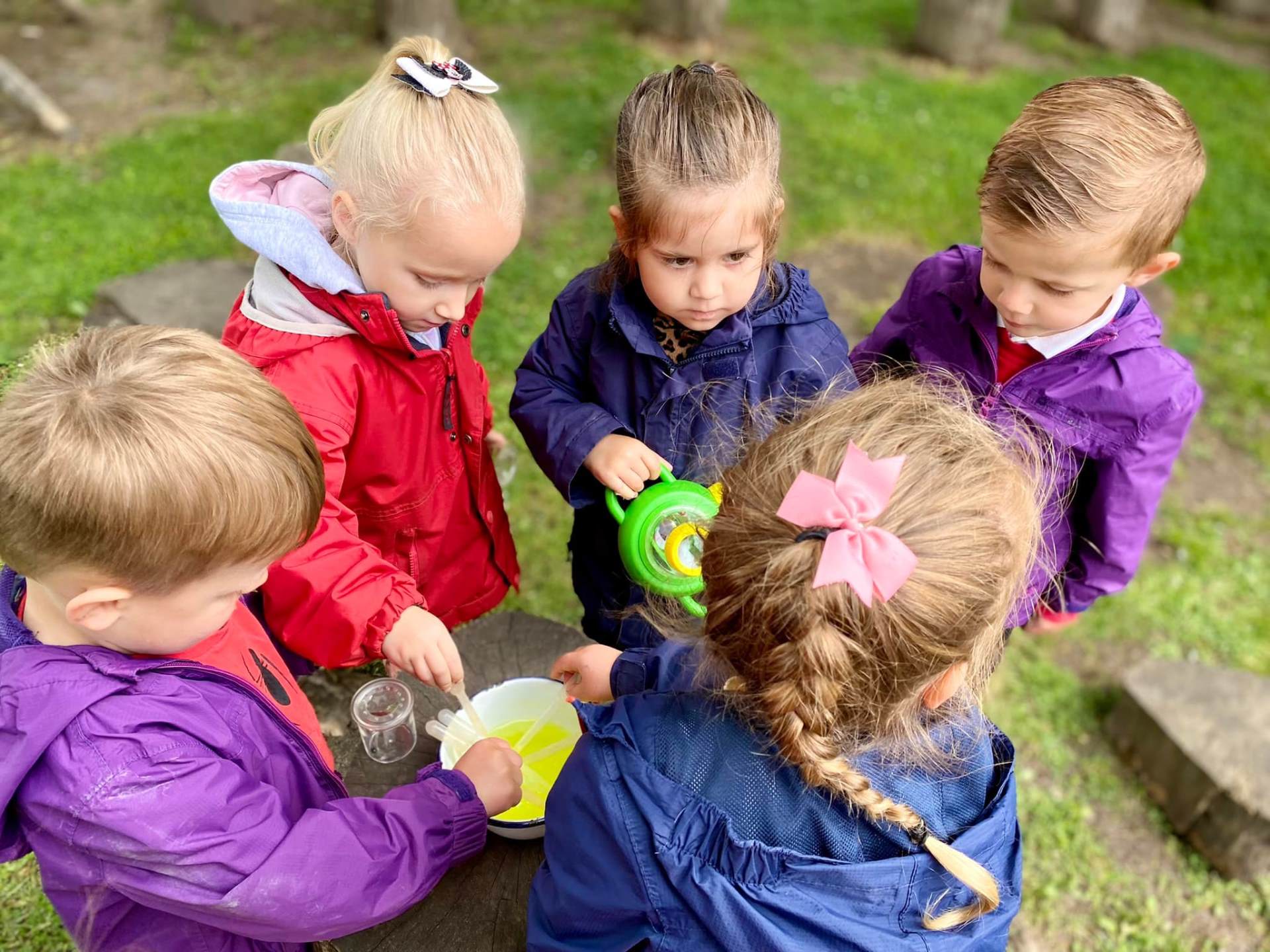
We acknowledge that our children are born with immense potential, strong in their identity, language and culture and encourage all children to learn in their own ways, supported by educators who know them well and have their best interests at heart (Te-Whariki) We believe that learning and development can only begin when a child feels safe and when they are immersed in an environment that nurtures respect. We believe that children need love, and they need to play to develop the skills they need to grow, develop and flourish (Froebel). We value our children as ‘strong, capable and resilient, already rich with wonder and knowledge’ (Reggio Emilia).
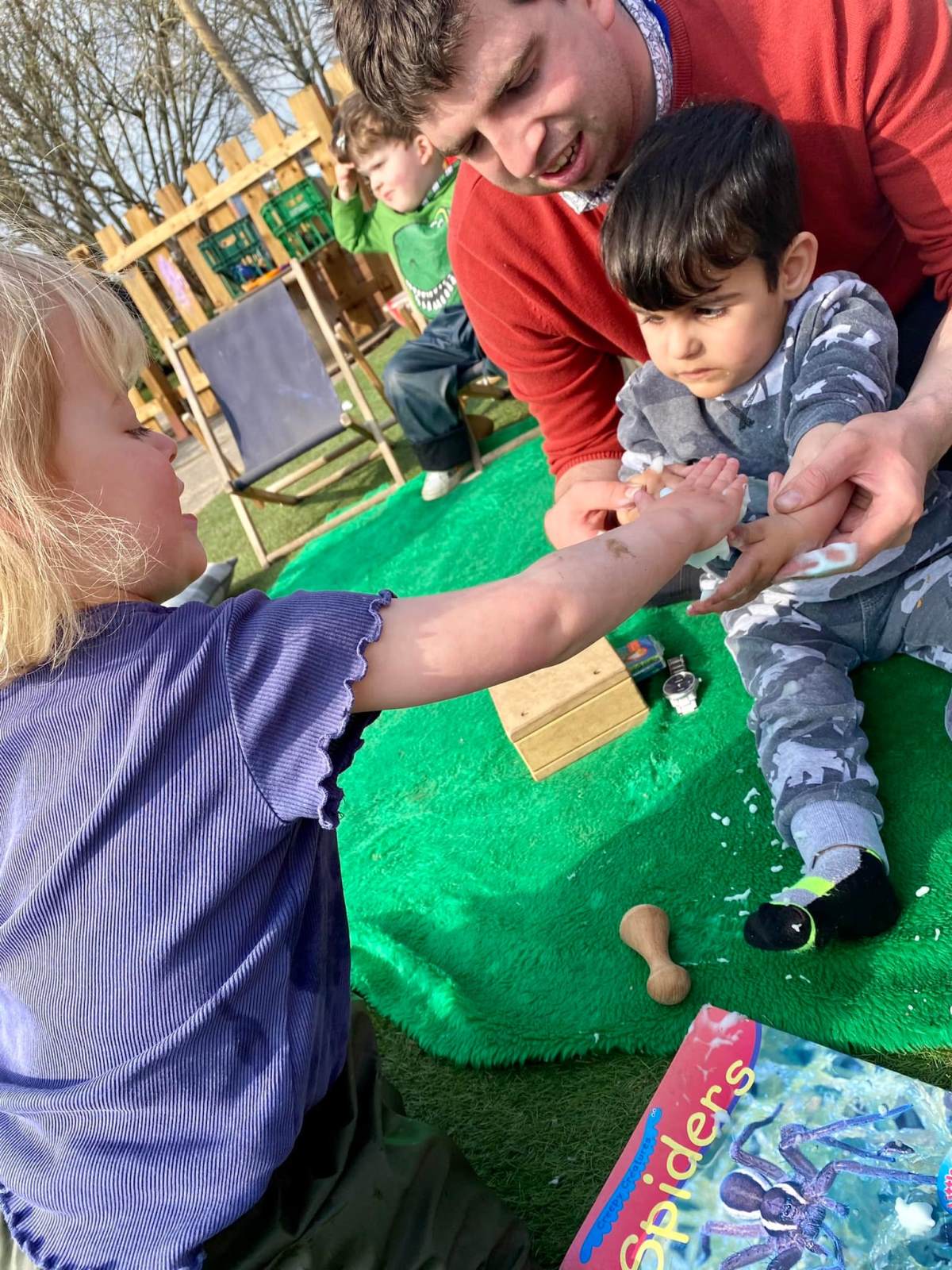
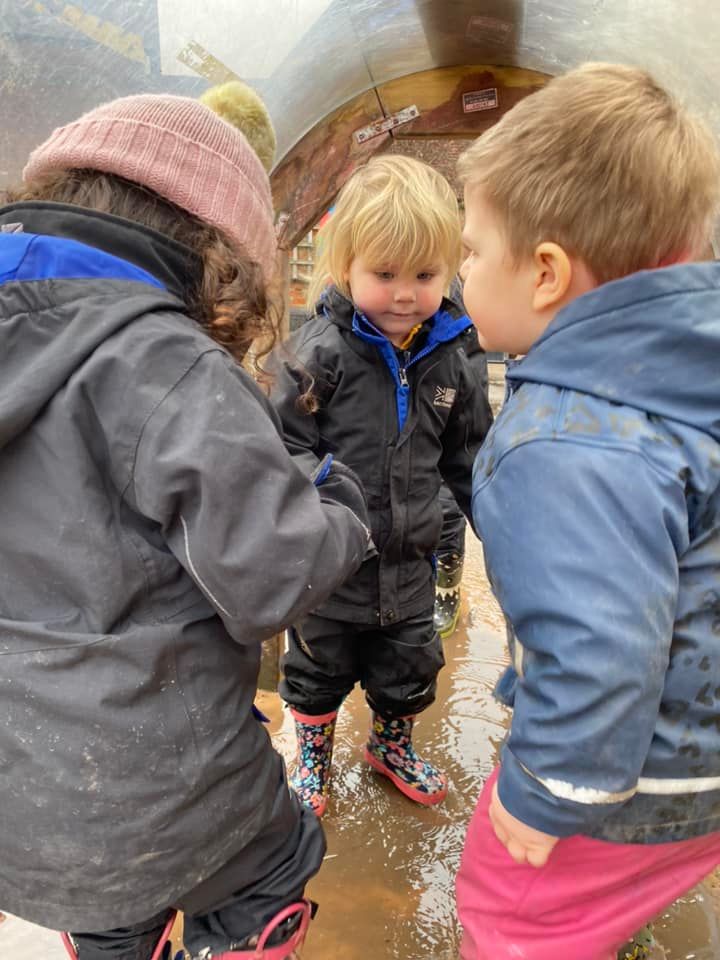

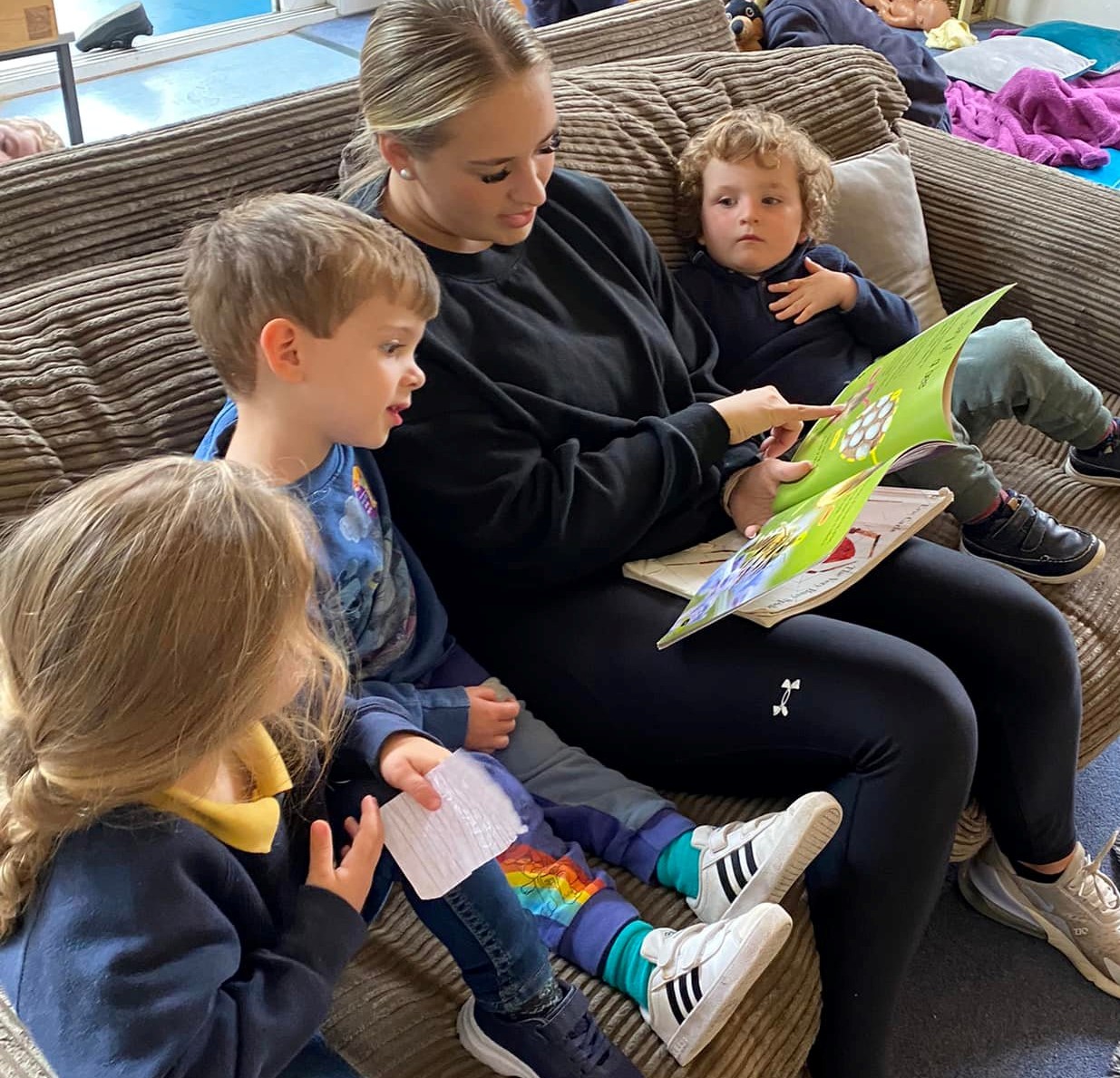
Observing, modelling language, learning and behaviour, suggesting, supporting, explaining, praising, showing, exploring ideas, encouraging, wondering, questioning, recalling and reminding, commenting, providing a narrative, facilitating and setting challenge.
It is only through observation, reflection and gentle, appropriate interaction that the educator is able to begin to understand children’s interests and engage with children to extend their knowledge and skills. We make this process visible through our planning and documentation. This visibility is vital, through it the children can see that their educators value their learning, this makes them feel positive about their own abilities and skills and it enables them to reflect so they can make decisions and become independent in their thinking.
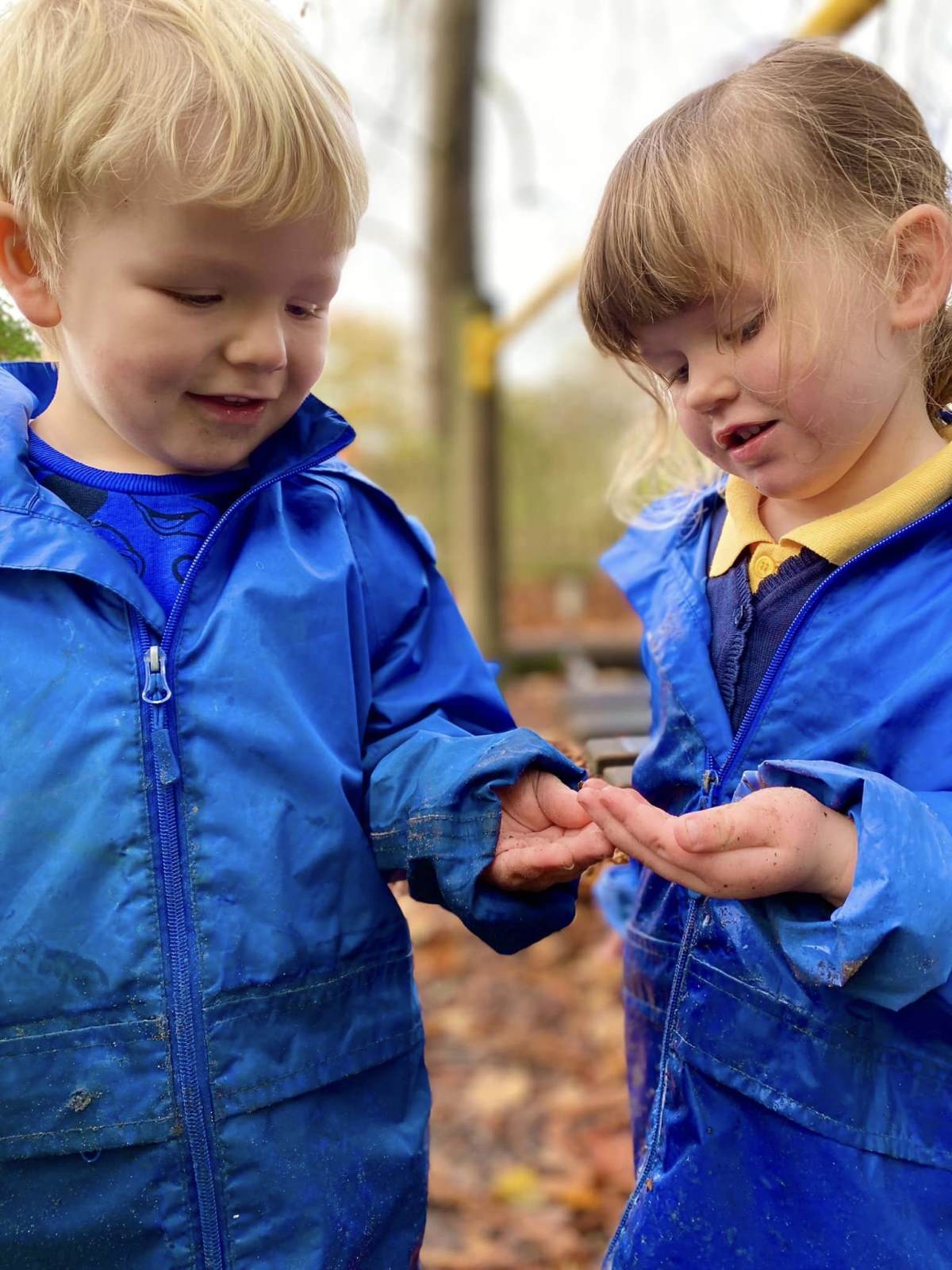
‘Responding to Process’ is our unique approach which enables us to adhere to the Revised Early Years Foundation Stage (EYFS) statutory framework Early Years Foundation Stage Statutory Framework for Group and School-Based Providers and uses the non-statutory guidance developed by the Early Years Coalition, Birth to 5 Matters to support educators in implementing the ‘Principles of the EYFS’.
